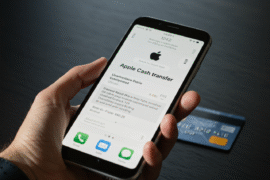This article may contain references to products or services from one or more of our advertisers or partners. We may receive compensation when you click on links to those products or services. Nonetheless, our opinions are our own.
The information presented in this article is accurate to the best of our knowledge at the time of publication. However, information is subject to change, and no guarantees are made about the continued accuracy or completeness of this content after its publication date.
Smart businesses require the financial institution they’ve partnered with to diligently guide and help them manage their finances. In return, the treasury and finance teams of this company are expected to nurture their relationship with the bank in order to be effectively aligned.
For this to work, the relationship between the bank and the company must be harmonious. Many times, companies that aren’t satisfied with their bank’s financial strategies or solutions look for other options. However, just a bit of work and understanding from companies can help banks meet them halfway.
Here are three effective ways for businesses to do just that.
1. Frequent and Clear Communication
Being in touch regularly and conducting quarterly meetings with your financial institutions allows the team to create good rapport. During meetings, the finance team of the company can clearly communicate the organization’s goals, and any emerging opportunities, issues, or challenges they are or will be facing.
It’s helpful if the CFO, controller, or treasurer are present. Receiving insights from the company gives the bank a head start to work on the solutions you’d need. With enough time they can provide you with well-thought-out guidance, products, and solutions, and share the current financial market status so that both teams can make informed decisions.
Your business bank relationship strengthens when you’re transparent about your struggles and needs, and open to implementing new ideas and solutions. It’s also important to share correct and thorough information. Incorrect or incomplete data can cause time wastage and working issues. The goal here is to make the success of the company the success of the bank. Frequent and clear communication is your first step toward a strong bond.
2. Expand Your Network With Bank Peers
Networking with and through your bank peers can open up the opportunity to build mutually-beneficial relationships. You and your bank peers may already be associated with other finance professionals. Networking and communicating with people from the same industry will always keep you updated about the current investing trends, surveys, reports, your competitor’s strategy, new solutions, and better options.
Networking together will build trust between the bank and your company. It will also grow your professional network and prove beneficial at the organizational and individual levels. You can also refer your bank to businesses you know. Building this connection will nurture the relationship you have with your bank.
Voted "Best Overall Budgeting App" by Forbes and WSJ
Monarch Money helps you budget, track spending, set goals, and plan your financial future—all in one app.
Get 50% OFF your first year with code MONARCHVIP
3. Update Your Bank Frequently
It is helpful for your bank to know your organization’s long-term plans and your progress when implementing financial solutions or strategies. Any changes in a pre-decided plan should be reported and shared with your bank as soon as possible. If the company can foresee any financial issues, upcoming debt, or capital requirements, it should be shared with the bank at the earliest opportunity.
In order to craft a suitable and successful solution and make arrangements in time, your bank will need updates consistently. Banks need to understand how you plan to run the business, your short-term and long-term goals, your issues, and your financial needs to provide you with an overall solution that considers all aspects.
Strengthen the Ties
No relationships whether personal or professional lasts without transparency, trust, and consistent effort. For a long-lasting and successful relationship, continue to strengthen the bond by communicating and being honest with your bank.

Reviewed and edited by Albert Fang.
See a typo or want to suggest an edit/revision to the content? Use the contact us form to provide feedback.
At FangWallet, we value editorial integrity and open collaboration in curating quality content for readers to enjoy. Much appreciated for the assist.
Did you like our article and find it insightful? We encourage sharing the article link with family and friends to benefit as well - better yet, sharing on social media. Thank you for the support! 🍉
Article Title: 3 Ways to Improve Your Business Bank Relationship in 2023
https://fangwallet.com/2023/01/09/3-ways-to-improve-your-business-bank-relationship-in-2023/The FangWallet Promise
FangWallet is an editorially independent resource - founded on breaking down challenging financial concepts for anyone to understand since 2014. While we adhere to editorial integrity, note that this post may contain references to products from our partners.
The FangWallet promise is always to have your best interest in mind and be transparent and honest about the financial picture.
Become an Insider

Subscribe to get a free daily budget planner printable to help get your money on track!
Make passive money the right way. No spam.
Editorial Disclaimer: The editorial content on this page is not provided by any of the companies mentioned. The opinions expressed here are the author's alone.
The content of this website is for informational purposes only and does not represent investment advice, or an offer or solicitation to buy or sell any security, investment, or product. Investors are encouraged to do their own due diligence, and, if necessary, consult professional advising before making any investment decisions. Investing involves a high degree of risk, and financial losses may occur including the potential loss of principal.
Source Citation References:
+ Inspo












































